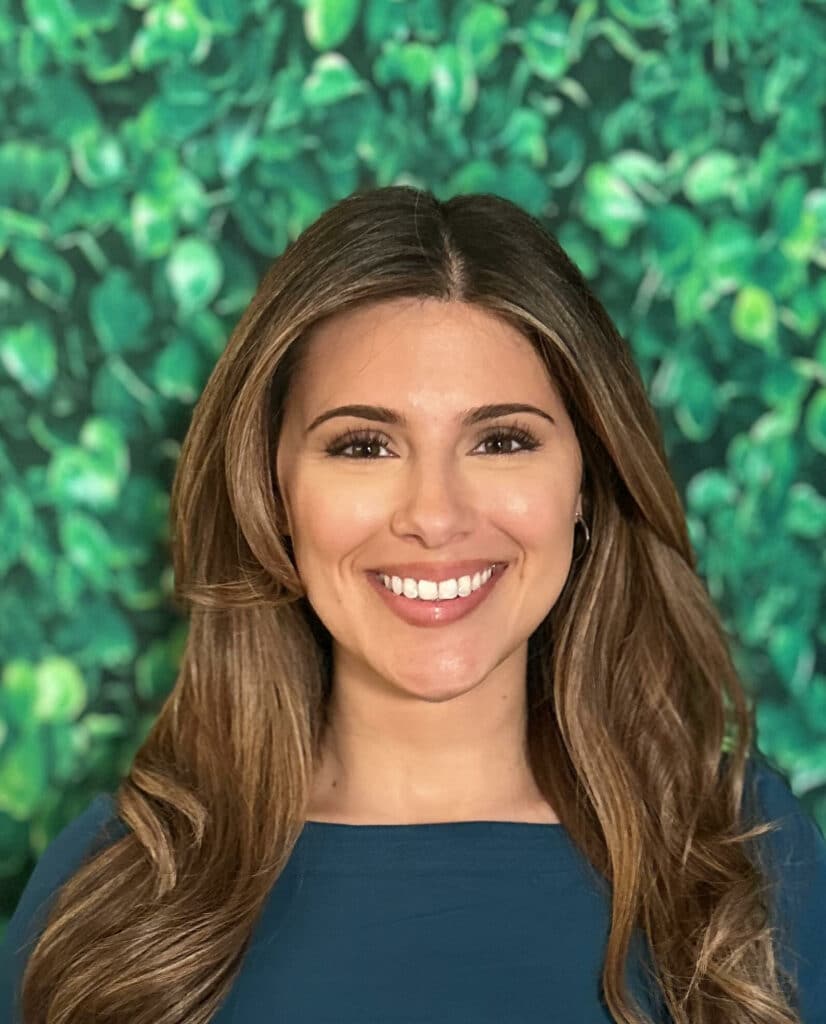Caitlin is an intake coordinator and psychotherapist at Wildflower. In her clinical practice, Caitlin draws on Cognitive Behavioral Therapy, Dialectical Behavioral Therapy, Motivational Interviewing, Acceptance and Commitment Therapy, and Exposure and Response Prevention. Caitlin works with adults, couples, and family structures experiencing body image struggles, life transitions, anxiety, relationship stressors, reproductive health concerns, and depression. Caitlin obtained her master’s in social work degree from University of Illinois at Chicago. Read Caitlin’s full bio here.
What inspired you to pursue a career as a psychotherapist?
I’ve always had a natural curiosity about human behavior even as a child. I come from a family with a history of mental illness, and I think I grew a strong capacity for empathy for people who struggle. After I graduated with a bachelor’s degree in criminal justice, I felt quite lost and unsure. Once I started browsing social work programs, I felt more at home and closer to a career that fit my values. I began my social work career out of a desire and interest to be in more of a helping profession. Since graduating and learning more about psychotherapy, I’ve felt tremendous satisfaction in doing this work.
As a psychotherapist, what part of your job is most satisfying?
It’s meaningful to create such a connection in the therapeutic space. I value and enjoy seeing my clients grow and do things outside of their comfort zone! I also love that my clients get to have a dedicated space to just focus on them – an hour to slow down, be present and reflect.
How would you describe your therapeutic approach?
My approach is person-centered, open, warm, yet direct and honest. I love to sprinkle in lightness and humor when possible. Clinically speaking, I am drawn toward cognitive behavioral approaches. I am also biased toward using mindful approaches and creating a space to become aware of how our body might be carrying stress. Much of my approach is guided by Acceptance and Commitment therapy which fosters awareness of our thoughts and allows values to guide our behavior and action.
Why do you believe that psychotherapy can help?
Throughout my career, I’ve seen clients make tremendous steps toward living a valued-driven life. I also know from personal experience how therapy impacted my life and helped me gain new perspectives. Along with those anecdotal experiences, I believe in the strong evidence-based modalities that are backed by research.
What are some of your specialties and what drew you to them?
I’m drawn to working on anxiety, body image disturbances and depression. I also have grown a love of working with parents and am pursuing more training to work with couples as well as a perinatal mental health certification.
What is one thing about psychotherapy you wish everyone knew?
Starting therapy is both a gift to yourself, and the start of what can be a difficult journey. It takes bravery and commitment to start. That being said, as a therapist, I follow my client’s lead and walk that path alongside them, without speeding the pace or slowing it down. No matter how intimidating, scary or impossible it may seem, change is always possible.
What is your motto or personal mantra?
A phrase I think I say to my clients (and to myself) often is simply to be kinder to yourself! Most of us are entirely too critical and mean to ourselves and it comes with no benefit! Learning the difference between unhelpful harsh self talk and helpful, critical reflection is important and meaningful work everyone can benefit from.
What are your favorite self-care activities?
I love walking, meditating, listening to music and going out to great restaurants. I am reenergized by time spent with close friends and family usually around a dinner table or sharing in an activity together. I also love getting lost in a museum or slowing down with a comforting tv show.


